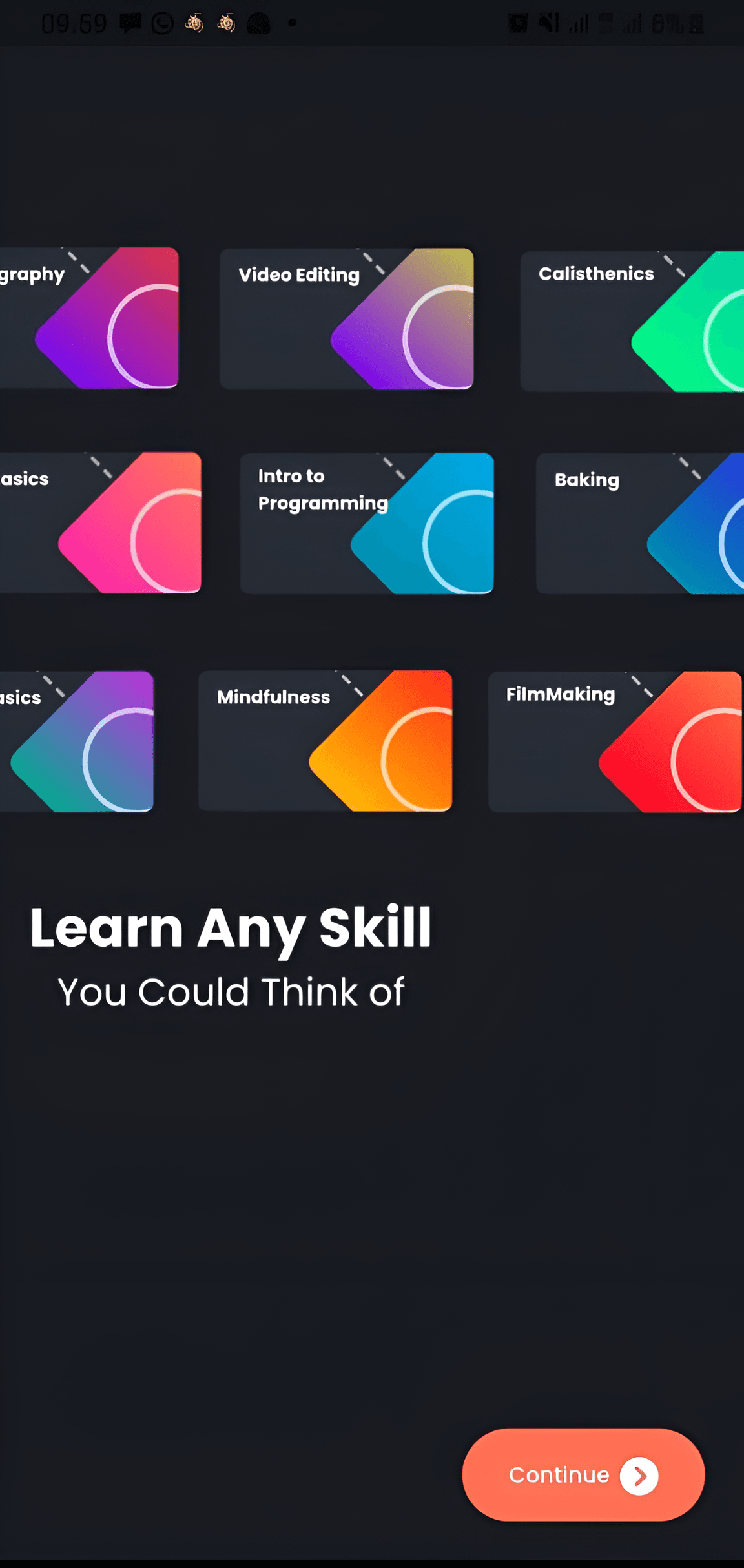Progress for 0 ad
Progress for 1 ad
Progress for 2 ad
Progress for 3 ad


Ana Mulatu
Addis Ababa, Ethiopia

When 25-year-old Ethiopian programmer Fenet Mulugeta reflects on his early attempts to learn coding, he describes a struggle familiar to many self-taught learners: the endless, unproductive pursuit of knowledge online, where an overwhelming flood of unstructured content fails to translate into lasting progress.
"I took dozens of online courses... some lasted 50, 60, or even 100 hours," Fenet recalls. "But I always felt stuck." He told Shega.
Growing up in Ethiopia, where access to quality, structured, and skill-focused education is limited, Fenet had to teach himself everything from programming to music. “There’s no shortage of content online, but making it structured specifically for us, who live in Ethiopia and not in the West, that’s the difficult part.”
However, in the process, he realized the core problem wasn't a lack of content, but a profound lack of guidance and structure. He was lost in what he now calls "tutorial hell."
That realization would become the midwife for Skilltrip an AI-powered learning application designed not to add more content to the internet, but to provide a clear, step-by-step path through the existing ocean of resources.
“If guidance was the missing piece, then I needed to design a learning experience that didn’t just give information but actually supported the learner step by step.”
Since dropping out of his Computer Science program at HiLCoE in his second year, Fenet has carried the idea of Skilltrip, born from his own struggles with unstructured learning. The platform aims to bridge this gap by organizing learning journeys and making online educational content more accessible and effective.
Fenet’s personal pain point is also a massive market opportunity. In Africa, the e-learning market was valued at around US$3.4 billion in 2024 and is expected to reach nearly US$7.7 billion by 2033. Skilltrip aims to capture this growth by addressing the critical gap: structured, personalized direction in a content-saturated world.
The idea solidified in his mind, and when one of RevenueCat's annual competition for developers was announced in 2025, Fenet saw an opportunity to bring Skilltrip to life. He began development on July 31 and completed the beta version by October, after two months of intensive work. Spending nearly 14 hours a day coding, animating, and creating sound effects, he focused on crafting a smooth, intuitive user experience. “Everything you see on the app, I did it myself,” he noted.
Skilltrip launched shortly after, though not without challenges. During the competition, Google banned his developer account, preventing the publication of apps with in-app purchases due to Ethiopia’s unsupported merchant status.
“I was building intensively for weeks, and the app grew like a creature with its own will. Then I hit a wall because I’m Ethiopian, I couldn’t set up a merchant account.”
While Google Play has extended developer registration to Ethiopia, the platform still does not permit merchant registration for local developers.
Fenet reached out to Google and emailed widely, but failed to receive a consequential response. Eventually, someone suggested collaborating with someone from a supported country. He did, and it worked.
By the time he regained access, the competition had ended. And he was disqualified. Undeterred, Fenet released the app, making it free for Ethiopian users. Within just over a month, Skilltrip had already attracted over 400 users from across the globe.
“It’s not a course app,” Fenet explains. Unlike traditional course platforms, Skilltrip does not host videos or lessons. Instead, it curates publicly available resources and organizes them into structured learning paths tailored to a user’s skill level, goals, and available time.
The app currently offers around ten curated paths in programming, Python, web development, mindfulness, and other topics, with frequent course additions. These pre-curated paths provide a ready-made route for learners, allowing them to start without designing a plan from scratch.
Once a user selects a skill, Skilltrip recommends resources, then prompts the learner to summarize what they understood. The app generates a personalized practice session, specifying what to practice, how, and which tools or platforms to use. Users log their practice time, reflect on difficulties, and take a quiz to unlock the next stage.
This structure was intentional. When Fenet was learning on his own, he often skipped ahead out of curiosity to see what came at the end of a course, a habit he says made it difficult to learn thoroughly. To prevent this, he locked the steps that come after the quiz. Unless the user passes the quiz, they can’t jump ahead.
Skilltrip offers two ways for users to build their learning paths. The first is through pre-curated paths for popular topics fetched from various platforms. These are routes organized for people who want a ready-made plan.
The second option is for users seeking a more tailored experience. With the app’s pro feature, they can create a custom learning path from scratch. The app asks what they want to learn, how many hours they can dedicate, their current skill level, and whether they prefer a practice-focused or knowledge-focused approach. Using this information, the AI generates a personalized learning journey designed to meet their specific needs.
While the platform uses a freemium model globally, charging $5.99 per month for pro features, Ethiopian users currently have full access for free. Local users simply email Fenet explaining why they want access, and he approves them. Skilltrip also includes a streak feature to encourage daily engagement, which the founder believes helps learners build consistency over time.
👏
😂
❤️
😲
😠

Ana Mulatu
Ana Mulatu is an intern at Shega Media and a third-year student at Addis Ababa University. She is passionate about startups and works to help them increase their digital presence.
Your Email Address Will Not Be Published. Required Fields Are Marked *